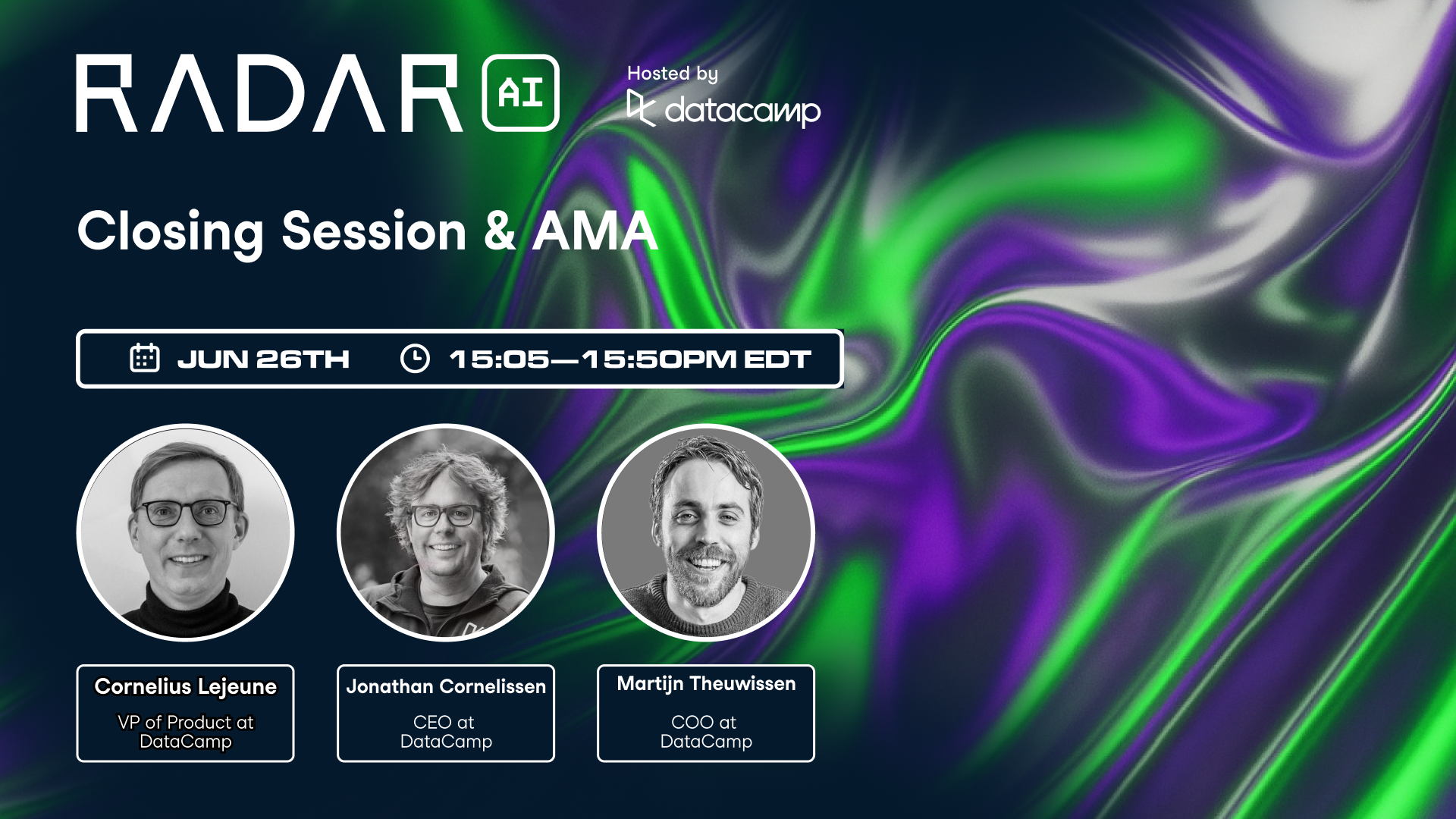Speakers

Cornelius Lejeune
VP of Product at DataCamp


Training 2 or more people?
Get your team access to the full DataCamp library, with centralized reporting, assignments, projects and moreClosing Session & AMA
July 2025
Related
webinar
Closing Session & AMA
Join DataCamp's executives Cornelius Lejeune, VP of Product, Maggie Remynse-Chou, VP of Curriculum, and Ryan Meuse, Head of Product for DataLab, for closing words to cap off the day. Followed by an "ask me anything" with all of them.webinar
Closing Session & AMA
DataCamp CEO and COO Jonathan Cornelissen & Martijn Theuwissen share closing words to cap off the day. Including an "ask me anything" with both of them.webinar
Closing words & AMA
Join DataCamp CEO and COO, Jonathan Cornelissen & Martijn Theuwissen for closing words to cap off the day. Followed by an "ask me anything" with both of them.webinar
Closing Remarks & AMA
Cap off the day with an AMA with Maggie Remynse-Chou, VP of Curriculum at DataCamp, Cornelius Lejeune, VP of Product at DataCamp, and Ryan Meuse, Head of Product for DataLab at DataCamp.webinar
Radar AI Edition 2024: Closing Session & AMA
Join DataCamp CEO and COO Jonathan Cornelissen & Martijn Theuwissen for closing words to cap off the day. Followed by an "ask me anything" with both of them.webinar